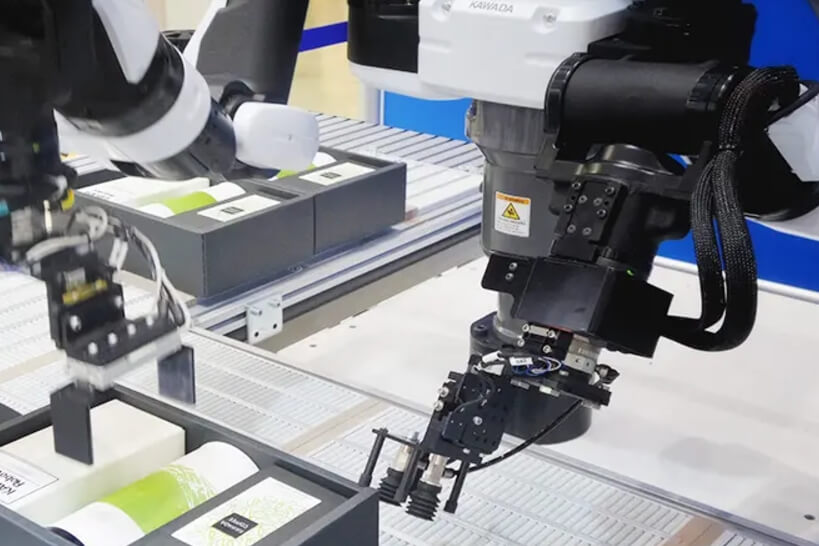Many top executives and CEOs in the tech industry, such as Satya Nadella and Marissa Mayer, started their careers as product managers. Discover what product managers do, the essential skills required, and how to pursue a career in this field, from APM programs to senior roles.
You may not know this, but many of today's top executives and CEOs in the tech industry—from Satya Nadella at Microsoft to Marissa Mayer at Yahoo—started their careers as product managers. It makes sense. Most product managers lead cross-functional teams, which not only gives them high visibility but also an opportunity for company-wide influence. For those who succeed, it becomes a valuable career advancement opportunity. But what exactly do product managers do? And is this role right for you?

What is Product Management?
At its core, product management is about solving problems at the intersection of business, technology, and user experience. A product manager (PM) is responsible for overseeing product development and its lifecycle. They act as a bridge between different teams, ensuring that the product both meets customer needs and achieves business objectives. Product managers are responsible for creating product roadmaps, which are action plans outlining the product's vision, direction, and expected progress over time. While a PM’s specific duties vary depending on the type of product, they generally manage all tasks required to bring a product to market.
What Skills Does a Product Manager Need?
Anyone can master this role with proper training. Based on our experience in product management, here are six core skills needed for a successful product manager:
Communication Skills
As an entry-level product manager, strong communication skills are essential. Early in your career, you may assist senior product managers by organizing weekly meetings to coordinate work across different departments, manage project expectations, and ensure that all collaborators are informed of key decisions and trade-offs. You may also need to send regular updates to ensure that everyone involved has a clear understanding of the team's priorities.
Poor communication can quickly lead to chaos. Information asymmetry between teams—like marketing not being aware of recent changes in product engineering—can cause redundant work or missed deadlines. In contrast, good communication not only helps prevent delays but also reduces friction between departments, creating a more trusted working environment.
Conflict Resolution
This skill is crucial. During project development, different teams may have conflicting views about aspects of the project, such as which options are feasible or which tasks should take priority. As a product manager, you need to mediate disagreements between team members or departments, requiring diplomatic tact and effective communication skills.
Execution Ability
Execution skills refer to the ability to turn plans into action. In product management, this means transforming strategy into concrete actions and ensuring tasks are completed before deadlines. Strong execution involves coordinating team members, managing timelines, and solving problems when they arise—even when information is incomplete. Additionally, you must have a degree of data literacy and critical thinking to identify the root causes of problems during product development and launch. Execution is vital because each task is a crucial part of the larger project, and mistakes—whether delays, inaccurate time/cost estimates, or poor coordination—can cause a ripple effect throughout the team.
Collaboration and Influence
Product development teams are made up of engineers, designers, marketers, legal experts, and other roles—specific members depend on the product's nature. Each team has its own expertise and priorities. As a product manager, your task is to unite everyone and ensure the team progresses smoothly toward the end goal. To do this, you must be able to persuade others and build influence within the team. They need to trust your product vision and be willing to follow your lead—even if you are not their direct superior.
Product Insight
As a product manager, you must have a deep understanding of user needs, market opportunities, and develop products that solve real problems. Strong product insight enables product managers to identify current user pain points and anticipate future issues. Product expert Marty Cagan explained the importance of product insight in his book: "One of the most important skills a product manager can have is the ability to distinguish between what users say they want and what they actually need."
Strategic Thinking
Lastly, you must be able to foresee market trends related to your product or industry, balance short-term wins with long-term organizational goals, and understand how your product's performance contributes to the business. As you advance in your product manager role, you may begin overseeing others, making strategic thinking and communicating the "big picture" to your team even more important.
How to Start This Career Path?
There are several paths into the product management career, but based on our experience, one of the most promising routes is to join an Associate Product Manager (APM) program, such as those offered by companies like Google, Atlassian, and Meta. These programs are typically aimed at recent graduates, and the application process is standardized, but professionals in the early stages of their career or those looking to switch careers can also apply.
In an APM program, you will work as a full-time employee and develop skills by rotating through different teams. For example, you may start by shadowing a senior product manager, learning hands-on about a specific product, and then move to another product team where you'll take on smaller tasks. Your work may involve organizing regular planning meetings, conducting user and market research, and even helping define the product vision or market plan.
After about a year in these programs, many APMs will gain more decision-making power, not just performing tasks but providing recommendations on whether the team should drop, modify, or enhance a particular product feature based on customer feedback.
The goal at the end of these programs is to secure a full-time position at the organization, where you can have a greater impact and engage in more strategic work. Your performance will be evaluated based on several key metrics: your actual influence—driving product features or updates that promote business growth or improve user experience; your ability to collaborate effectively with team members to achieve goals; your decision-making ability under incomplete information; and your ability to analyze and solve root problems.
Without an APM program, entering product management can be more challenging. One of us, Natalie, transitioned from an engineering role to a product manager role at Airbnb and faced the challenge of solving senior management issues quickly and clearly in her first month. She had to teach herself how to juggle multiple projects and adjust her communication style to lead employees of different seniorities effectively. While this was a huge growth opportunity, the transition was much more difficult without the guidance and mentoring provided by an APM program.
That being said, regardless of the path you choose, the key is to stay flexible, continue learning, and focus on delivering value to your users and business.
Which Product Management Role Is Right for You?
Product managers are found in almost every industry. If you have a background in computer science, engineering, or mathematics, you might be interested in technical product management roles, such as those in artificial intelligence. In these roles, being able to speak the same technical language as engineers is crucial.
For those with a strong foundation in data analysis and statistics, product manager roles that emphasize metrics and measurements might be a great fit, especially in large companies in the consumer internet space, where product decisions are often based on complex user interactions, satisfaction, and product usage metrics.
For those who are passionate about strategy, marketing, and operations, you may want to consider product manager roles at companies serving large B2B clients. These roles focus on quickly grasping market changes and are often identified by unique job titles, such as "Partner Product Manager" or roles emphasizing "working closely with clients."
For those with a deep understanding of users or a design background, a product manager role at a startup might be appealing. In such a role, you can leverage your strengths by continuously gathering user feedback, iterating on products quickly, and focusing on innovative prototype development.
Lastly, the size of the company matters too. In large companies with over 50,000 employees, like Meta or TikTok, product communication is more formalized. Product managers, engineering leads, and design leads need to report progress and challenges in structured meetings with key decision-makers.
In smaller companies or startups, communication is more flexible. There are fewer rules, and people adjust based on real-time situations. Significant product achievements might be shared company-wide via instant messaging tools like Slack. The CEO might even inquire directly with the product manager about a specific product detail.
Despite the recent wave of layoffs in the tech industry and the instability in the job market, product management remains a vibrant field for early-career professionals. It's estimated that over one-third of product management positions are for junior or mid-level professionals. Therefore, you should take the time to reflect on what motivates and excites you, as well as where your strengths lie. If you choose this career path, it could lead to a fulfilling and successful career.


![15 Effective Ways to Increase App Downloads for Overseas Markets [With Case Studies]](/static/upload/image/20241230/1735570252211470.jpg)




